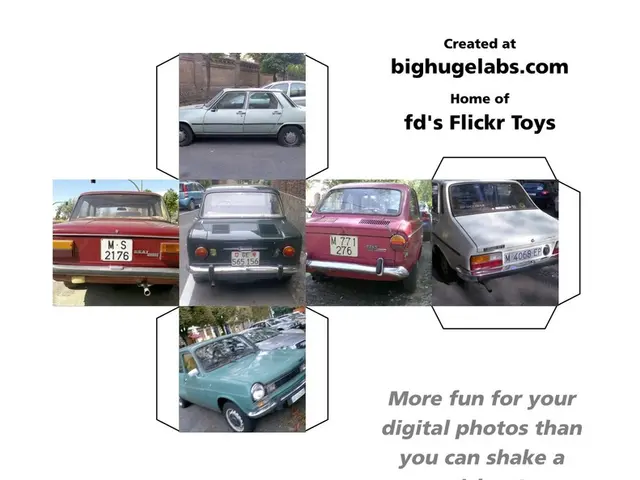Thousands of Ford Employees in Cologne Strike Amid Cost-Cutting Measures
Employees in large numbers at Ford's Cologne site engage in a work stoppage - Thousands of workers at Ford's Cologne plant go on a work stoppage.
Get ready for some industrial action! Thousands of Ford employees in Cologne, Germany are currently on strike as part of the company's cost-cutting measures. According to the plans, the struggling US automaker aims to slash 4,000 jobs in Europe by 2027, with 2,900 jobs in Germany taking a hit.
The striking plants in Cologne, a city known for its vibrant culture and charming charm, have been blockaded since the crack of dawn. David Lüdtke, who works at these plants, shared that only a handful of employees attempted to brave the picket lines and make it to work. Lüdtke and his colleagues tried to persuade the courageous few to join the strike, hoping to stand united against the proposed job cuts.
While some employees still work night shifts, Lüdtke clarified that those numbers are nowhere near the triple digits. These workers maintain crucial facilities that would otherwise grind to a halt.
The recent vote to call the strike showed a massive turnout. A whopping 93.5% voted in favor, with an impressive 95.7% casting their votes. This is the first strike at the Cologne site following a vote, as warning strikes in the past did not come with strike pay for the employees.
Ford's American parent company announced the cancellation of a patronage declaration that has been in place since 2006 in March of this year. This declaration guaranteed that the US company would cover the subsidiary's debts. With this cancellation, Ford has opened the door to the possibility of declaring bankruptcy in the coming years, according to Benjamin Gruschka, chairman of the works council of the Ford plants. A "short-term bankruptcy" is also a looming threat.
The Left party's head, Ines Schwerdtner, criticized Ford for being slow to adapt to transformation, and instead, sleeping through the transition from traditional vehicles to electric cars. Schwerdtner believes that Ford should have switched to EV production sooner to ensure future-proof manufacturing.
As negotiations between the union and the company continue, the employer side recently contacted IG Metall with new solution proposals. Kerstin Klein, first authorized representative of IG Metall Cologne-Leverkusen, stated that they would listen to these proposals and consider whether further negotiations are possible this week. The strike in the Niehl and Merkenich plants is scheduled to conclude early Thursday morning.
Let's take a step back and look at Ford's current financial predicament. The company is grappling with substantial costs related to tariffs, expected to reduce earnings significantly in 2025. Ford anticipates losing around $2.5 billion in gross profit and $1.5 billion in net profit due to tariffs imposed on vehicles and parts imported from Mexico, Canada, and other countries. The company is actively working to reduce tariff costs via logistical changes, such as transporting vehicles from Mexico to Canada with bond carriers to avoid US tariffs.
CEO Jim Farley has indicated that tariff expenses in the first quarter of the year have already decreased by nearly 35 percent to $200 million. Ford is also addressing tariff-induced cost pressures by offering employee pricing on 2024 and 2025 models to boost sales and reduce inventory. Although official price increases have yet to be announced, Farley hinted that a 1 to 1.5 percent price hike across the industry is possible in the latter half of 2025 to offset some tariff costs.
At the moment, we don't have explicit information about ongoing strikes or labor disputes at Ford's Cologne plants and their connection to the broader cost-cutting measures. The latest updates have been more focused on tariff impacts and financial strategy rather than labor issues abroad. Keep an eye on these developments!
The striking Ford employees in Cologne, despite the ongoing cost-cutting measures, are yet to receive aid from the industry or local finance sources for the restructuring of the steel industry, transportation, or automotive sectors. As the negotiations between the union and the company continue, further talks about potential aid for these industries may arise as part of the proposed solutions.








